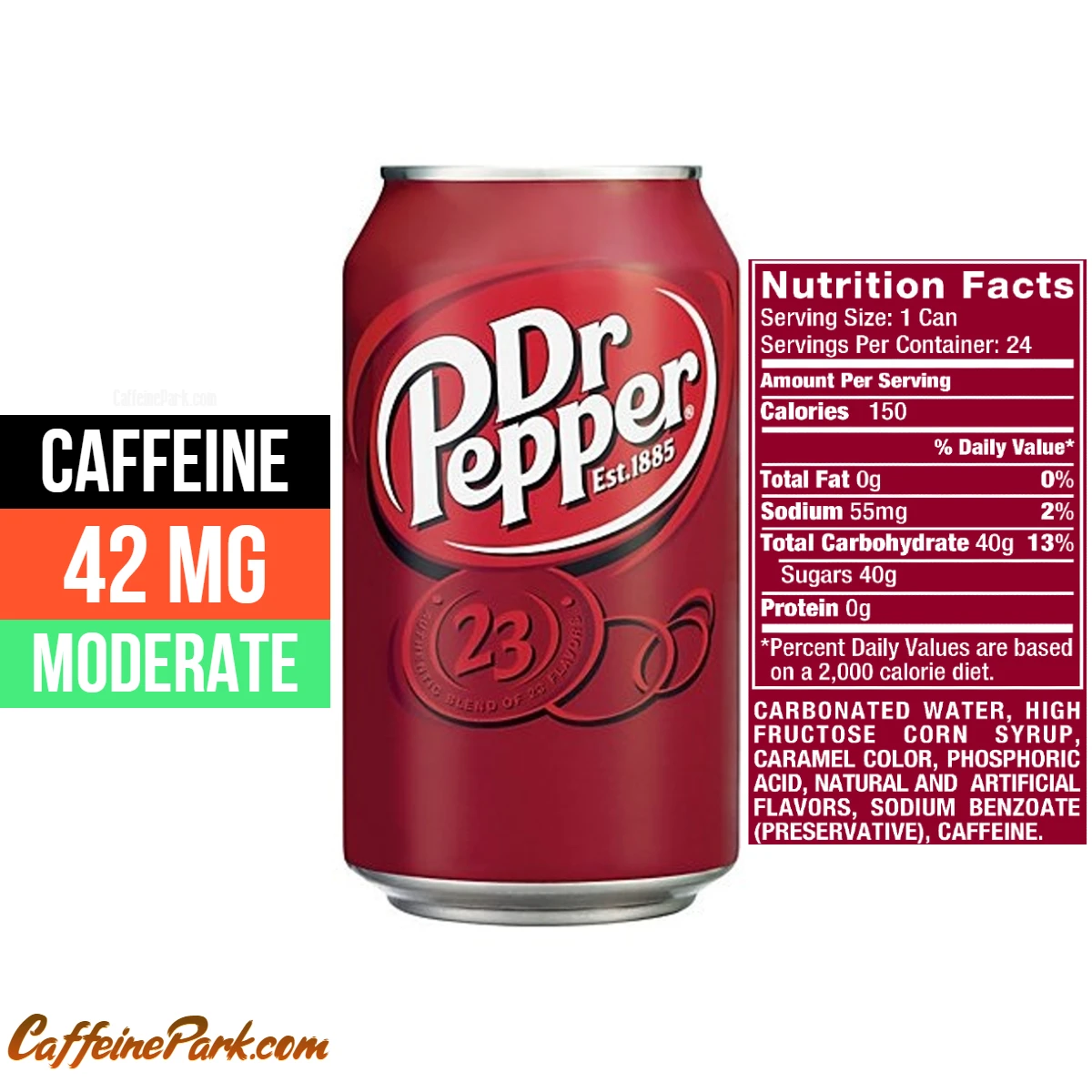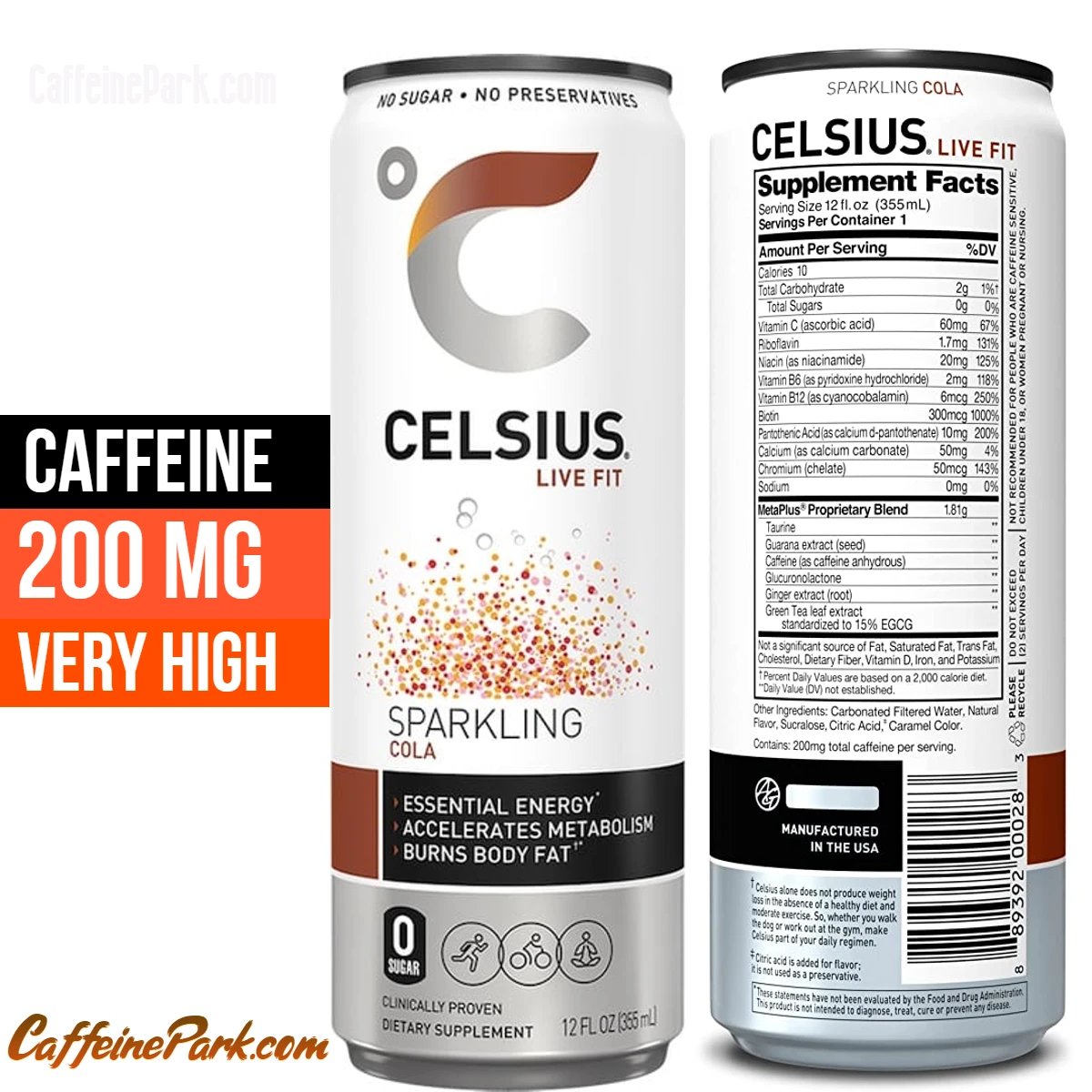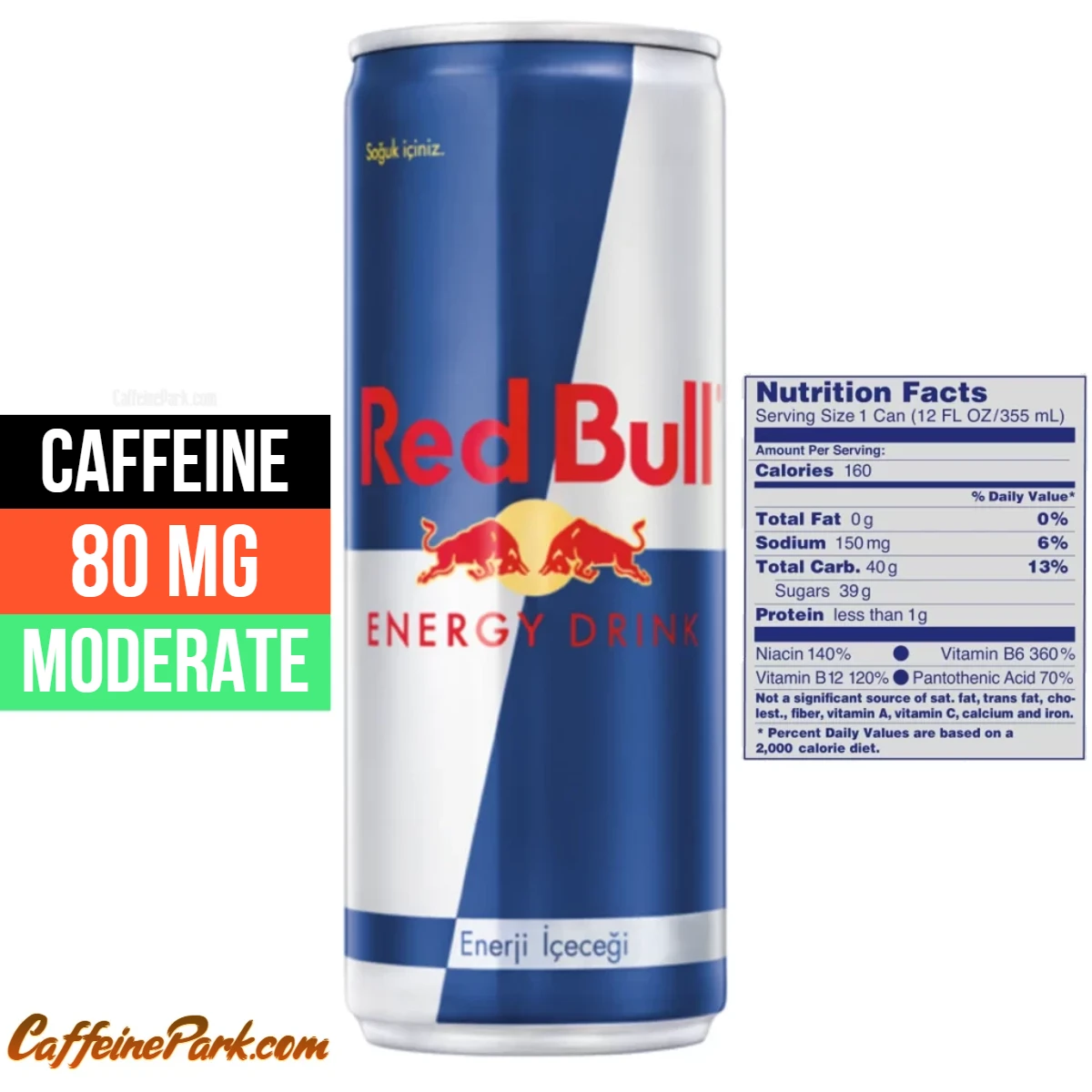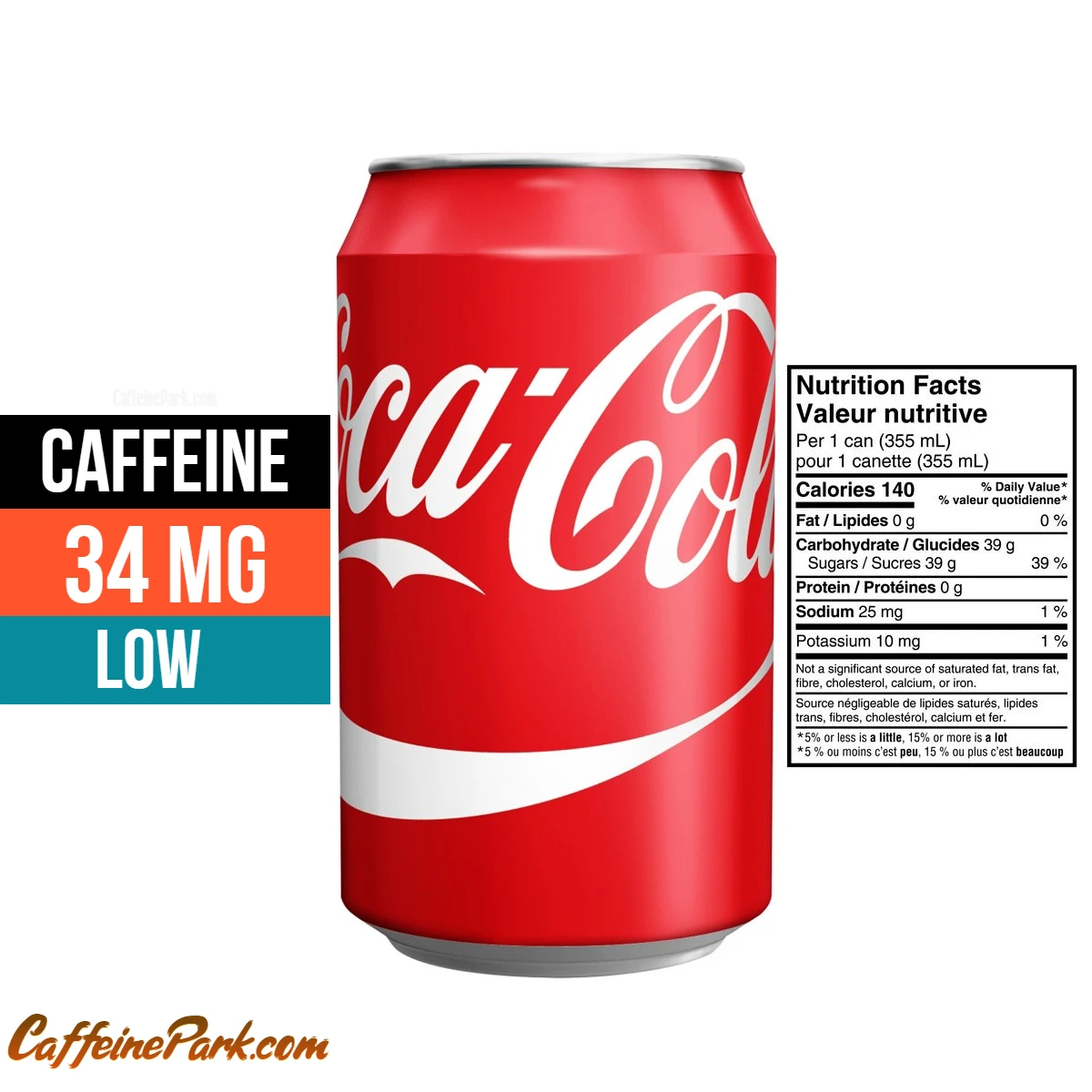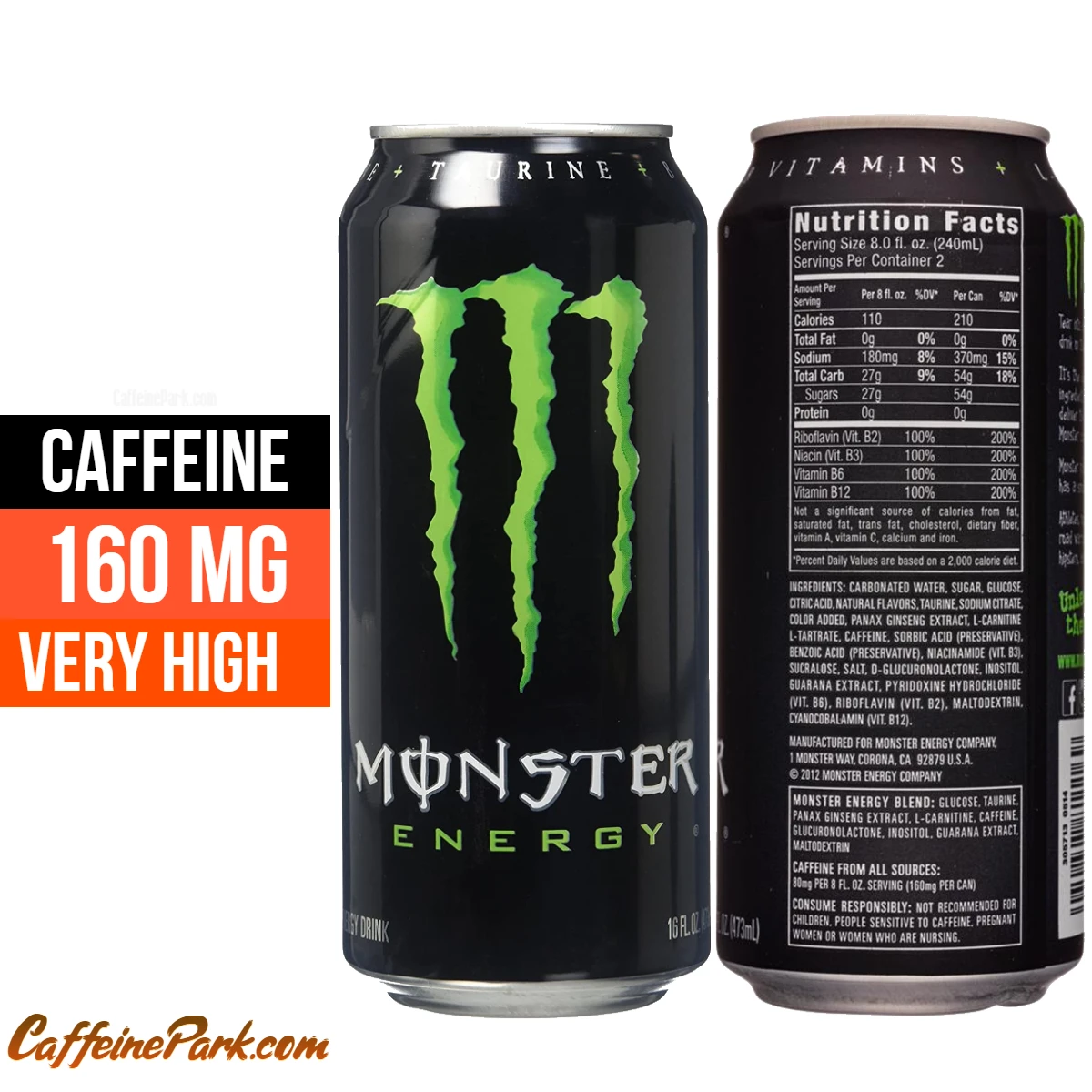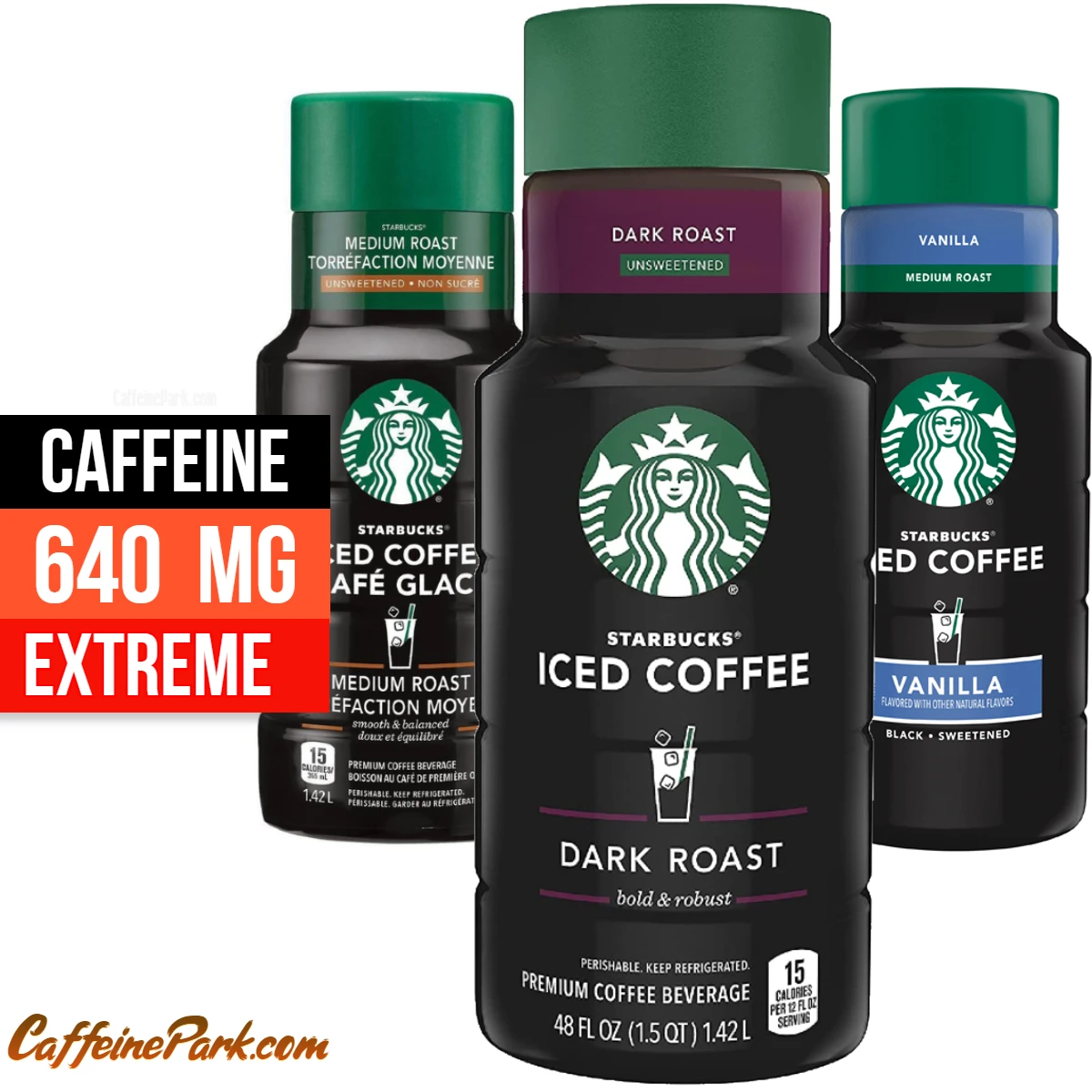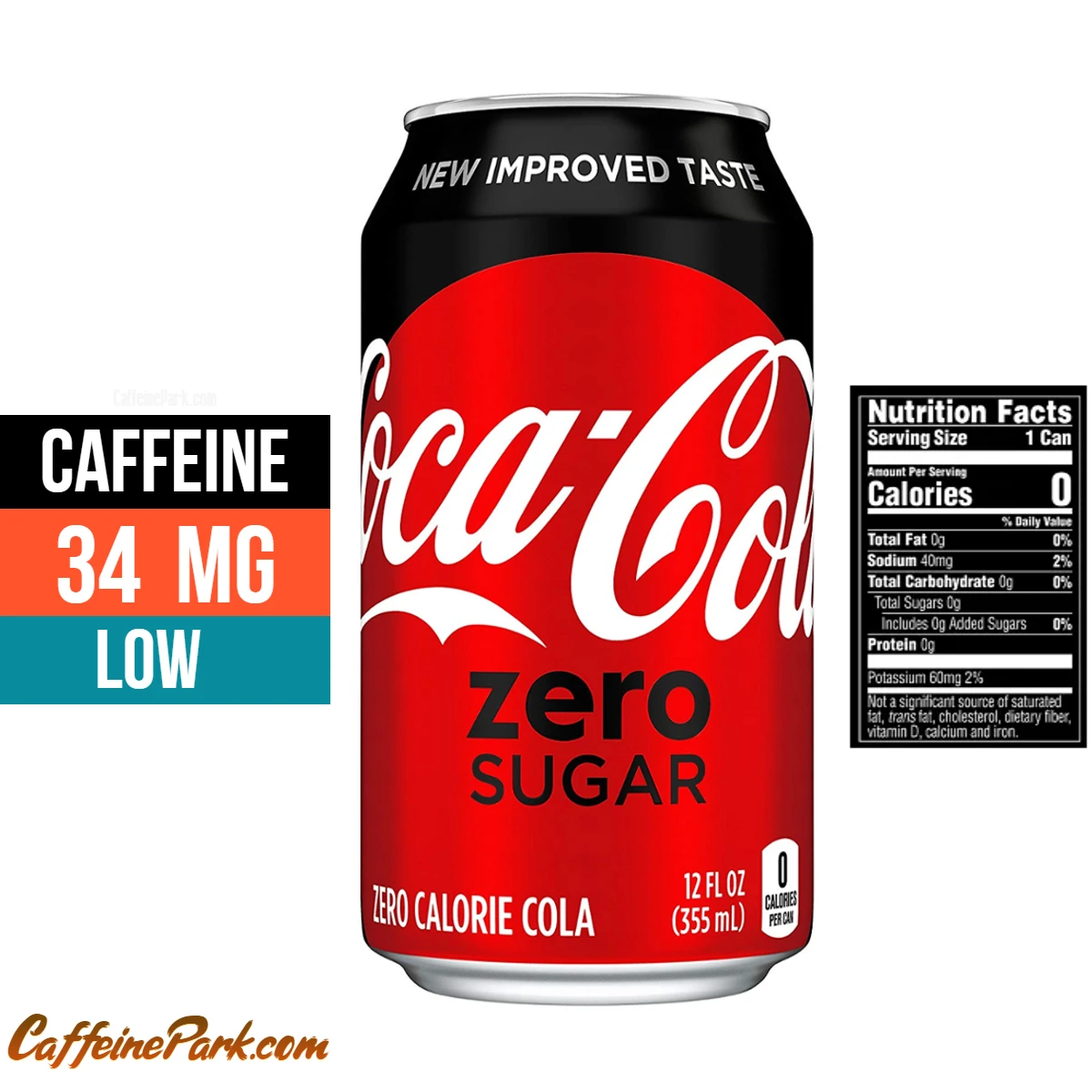
Coke Zero is a popular diet soda that is marketed as having the same classic Coca-Cola taste without calories or sugar. One of the main ingredients in Coke Zero is caffeine, which is a natural stimulant found in many foods and beverages. According to the Coca-Cola company, a 12-ounce serving of Coke Zero contains 34 milligrams of caffeine. This is similar to the caffeine content of a regular 12-ounce can of Coca-Cola.
Coke Zero contains synthetic caffeine, which is a chemically manufactured form of caffeine. Synthetic caffeine is made by synthesizing compounds that mimic the chemical structure of natural caffeine. It is commonly used in foods and beverages as a caffeine source because it is less expensive and more stable than natural caffeine. Synthetic caffeine is also used in the pharmaceutical industry as a stimulant ingredient in various medications.
Does Coke Zero have caffeine?
Yes, Coke Zero Sugar contains 34mg of caffeine per 12 fl oz can and 2.83mg of caffeine per fl oz (9.58 mg per 100 ml). Coke Zero has caffeine and the information about its caffeine is as follows:
| Serving size | Caffeine Amount | Caffeine strength |
|---|---|---|
| 100 ml | 9.6 mg | LOW |
| 8 fl oz can (235 ml) | 22.7 mg | LOW |
| 12 fl oz can (350 ml) | 34 mg | LOW |
- Caffeine Amount: 34 mg
- Caffeine strength: LOW
- Calories: 0cal
- Serving size: 12 fl oz can
- Sugar: 0 grams (Sugar-free)
It’s worth noting that the daily recommended limit for caffeine intake is 400 mg for adults, according to the Mayo Clinic. It’s important to monitor your caffeine intake to ensure that you’re not consuming too much, as excessive caffeine consumption can lead to unwanted side effects such as difficulty sleeping, irritability, and an increased heart rate.
Ingredients in Coca-Cola Zero Sugar
- Carbonated Water
- Caramel Color
- Phosphoric Acid
- Aspartame
- Potassium Benzoate (to Protect Taste)
- Natural Flavors
- Potassium Citrate
- Acesulfame Potassium
- Caffeine
Compare caffeine in Coke Zero Vs. Zero Sugar Soft Drinks
| Zero Sugar Soft Drinks | Serving Size | Caffeine |
|---|---|---|
| Coke Zero | 12 fl oz | 34mg |
| Mountain Dew Zero Sugar | 12 fl oz | 68mg |
| Pepsi Zero Sugar | 12 fl oz | 69mg |
| A&W Zero Sugar Cream Soda | 12 fl oz | 0mg |
| Diet Dr Pepper | 12 fl oz | 41mg |
Coke Zero Sugar Flavor Variations
All Zero Sugar products contain the same amount of caffeine (34mg per 12 fl oz) as regular zero-sugar products. Caffeine-free products do not contain any caffeine.
- Coke Zero Sugar Cherry
- Coke Zero Sugar Vanilla
- Coke Zero Sugar Cherry Vanilla
- Coke Zero Sugar Orange Vanilla
- Coke Zero Sugar Caffeine Free
Alternative to Coke Zero Sugar
If you’re looking for an alternative to Coke Zero Sugar, there are several other low-calorie or zero-calorie soda options available on the market. Here are a few:
- Pepsi Max: This low-calorie soda has zero sugar and contains slightly more caffeine than Coke Zero Sugar at 69mg per can.
- Diet Dr. Pepper: This zero-calorie soda has a unique blend of flavors and contains 41mg of caffeine per can.
- Sprite Zero: This zero-calorie lemon-lime soda contains no caffeine and is a good option for those who want to avoid caffeine altogether.
- Fanta Zero: This zero-calorie soda is available in several fruity flavors and contains no caffeine.
- Zevia: This brand offers a variety of zero-calorie sodas made with natural sweeteners like stevia and monk fruit.
It’s important to note that while these alternatives may be lower in sugar and calories, they still contain artificial sweeteners and other additives. As with any food or beverage, it’s best to consume them in moderation and as part of a balanced diet.
Review
Coke Zero is a popular diet soda that is marketed as having the same classic Coca-Cola taste without calories or sugar. It was first introduced by the Coca-Cola Company in 2005 as a zero-calorie alternative to regular Coca-Cola. Since then, it has become a popular choice for those looking to cut back on sugar and calories but still enjoy a classic soda taste. In this review, we will take a closer look at the history, taste and flavor, ingredients and nutrition, benefits, side effects, price and availability, comparison to others, customer reviews, and pros and cons of Coke Zero.
History
Coke Zero was first introduced by the Coca-Cola Company in 2005 as a zero-calorie alternative to regular Coca-Cola. The product was developed in response to growing consumer demand for diet and low-calorie options. The formula for Coke Zero was designed to replicate the taste of regular Coca-Cola but without the calories and sugar. The product was first launched in the United States and was later introduced in other countries around the world.
Taste and Flavor
Coke Zero is designed to have a similar cola taste to regular Coca-Cola, with a familiar cola flavor and a slight hint of caramel. The product is sweetened with a combination of aspartame and acesulfame potassium, which are both artificial sweeteners.
The cola flavor in Coke Zero comes from a blend of natural and artificial flavors, including cinnamon, nutmeg, and citrus oils. The slight hint of caramel comes from the caramel color added to the soda. The aspartame and acesulfame potassium sweeteners provide a sweetness that is similar to sugar but without calories.
The overall taste of Coke Zero is crisp and refreshing, with a balance of sweetness and carbonation. Some people may be able to taste a slight difference between Coke Zero and regular Coca-Cola, but overall the taste is similar, allowing those who are calorie-conscious to still enjoy the taste of classic Coca-Cola.
Calorie and sugar content
One of the main differences between Coke Zero Sugar and regular Coke is their calorie and sugar content. Coke Zero Sugar is lower in calories and sugar compared to regular Coke. One 12 fl oz (355 mL) serving of Coke Zero Sugar contains 0 calories and 0 grams of sugar, while one 12 fl oz serving of regular Coke contains 140 calories and 39 grams of sugar.
This makes Coke Zero Sugar a good option for people who are looking to reduce their calorie and sugar intake, or for those who are trying to maintain a healthy weight. However, it is worth noting that Coke Zero Sugar contains artificial sweeteners, which may have negative health effects if consumed in excess.
Caffeine content
Coke Zero Sugar contains caffeine, which is a stimulant that can improve mental alertness and physical performance. One 12 fl oz (355 mL) serving of Coke Zero Sugar contains 34 mg of caffeine, which is similar to the caffeine content of regular Coke.
While caffeine can have beneficial effects, it is important to consume it in moderation. The Mayo Clinic recommends limiting caffeine intake to no more than 400 mg per day, which is equivalent to about four or five 12 fl oz cans of Coke Zero Sugar. Some people may be more sensitive to caffeine and may experience negative side effects such as jitters, insomnia, or an increase in heart rate and blood pressure.
ingredients
The ingredients in Coke Zero Sugar are carbonated water, caramel color, phosphoric acid, natural flavors, potassium citrate, aspartame, potassium benzoate, and caffeine. While ingredients in Coke Zero Sugar vary depending on the location where it is purchased but generally include:
- Carbonated water
- Caramel color
- Phosphoric acid
- Artificial sweeteners (aspartame and acesulfame potassium)
- Natural flavors
- Citric acid
The exact formulation of Coke Zero Sugar may vary depending on the location and the specific product. For more information about the ingredients in Coke Zero Sugar, it is recommended to check the label or the product website.
Availability and price
Coke Zero Sugar is widely available and can be purchased at most retailers and food service establishments. It is also available for purchase online through various e-commerce websites. The price of Coke Zero Sugar may vary depending on location and retailer, but it is generally similar in price to regular Coke.
Benefits
One of the main benefits of Coke Zero is that it is a zero-calorie alternative to regular Coca-Cola. This makes it a great option for those looking to cut back on sugar and calories but still enjoy a classic soda taste. Additionally, the caffeine content in Coke Zero can provide a boost of energy and improve mood.
Side Effects
Consuming too much caffeine can lead to negative side effects such as jitteriness, insomnia, and increased heart rate. Additionally, aspartame, one of the sweeteners used in Coke Zero, has been linked to potential health risks and it’s important to consume it in moderation.
Comparison to others
Coke Zero is similar to other diets and low-calorie sodas in that it is a zero-calorie alternative to regular soda. However, it is unique in that it is specifically designed to taste similar to regular Coca-Cola. Other popular diets and low-calorie soda options include Pepsi Max and Sprite Zero.
Pepsi Max is also a zero-calorie alternative to regular Pepsi, it has a similar cola taste but with a slightly more intense flavor. It also contains more caffeine than Coke Zero, with 69mg per 12 oz serving.
Sprite Zero is a zero-calorie alternative to regular Sprite, it is a clear, lemon-lime flavored soda with a crisp taste. It doesn’t contain caffeine, which makes it a great option for those who want to avoid caffeine or want a non-caffeinated alternative.
All three options, Coke Zero, Pepsi Max, and Sprite Zero, are good options for those looking for a zero-calorie alternative to regular soda. The final choice will depend on personal preference and taste, and whether or not the consumer wants caffeine in their drink.
Coke Zero and Diet Coke
Coke Zero and Diet Coke are both diet soda options offered by the Coca-Cola Company. Both are zero-calorie alternatives to regular Coca-Cola and are designed to taste similar to the original but without calories and sugar. However, there are a few key differences between Coke Zero and Diet Coke.
Taste: Both Coke Zero and Diet Coke have similar cola tastes, but Diet Coke has a slightly sweeter taste and more intense flavor.
Ingredients: Both Coke Zero and Diet Coke contain aspartame and acesulfame potassium as sweeteners, but Diet Coke also contains saccharin. They both contain caffeine, with a 12-ounce serving of Coke Zero containing 34 milligrams and a 12-ounce serving of Diet Coke containing 46 milligrams.
Nutrition: Both Coke Zero and Diet Coke have zero calories and zero grams of sugar.
Target Audience: Coke Zero is marketed as a zero-calorie alternative to regular Coca-Cola, while Diet Coke is marketed as a diet soda option for those looking to cut back on calories.
Customer Reviews
Overall, customer reviews for Coke Zero are positive, with many praising the product for its similar taste to regular Coca-Cola but with zero calories. However, some customers have complained about a slight aftertaste and some have raised concerns about the use of artificial sweeteners in the product.
Pros and Cons
Pros:
- Zero calories
- Similar taste to regular Coca-Cola
- Widely available
Cons:
- Some customers have complained
Conclusion
Coke Zero Sugar is a lower-calorie, sugar-free alternative to regular Coke that is intended to taste similar to the original formula. It is made with a blend of carbonated water, caramel color, phosphoric acid, natural flavors, potassium citrate, aspartame, potassium benzoate, and caffeine. It is widely available and can be purchased at most retailers and food service establishments. Coke Zero Sugar is lower in calories and sugar compared to regular Coke, but it contains caffeine and artificial sweeteners, which may have negative effects if consumed in excess.
FAQs
Coke Zero Sugar is a carbonated soft drink produced and sold by The Coca-Cola Company. It is marketed as a lower-calorie, sugar-free alternative to regular Coke, and is designed to taste similar to the original formula. Coke Zero Sugar is available in a variety of sizes and can be purchased at most retailers and food service establishments.
No, coffee typically has more caffeine than Coke Zero. Caffeine is a stimulant that is naturally found in the leaves, seeds, and fruit of a number of plants, including the coffee plant and the tea plant. It is commonly added to coffee and tea as well as to a variety of other beverages and products, such as energy drinks and chocolate, to help improve alertness and focus.
Coke Zero is a sugar-free, low-calorie version of Coca-Cola that contains no sugar or calories. It does contain caffeine, but the amount of caffeine in a serving of Coke Zero is generally lower than the amount of caffeine in a serving of coffee. The exact amount of caffeine in Coke Zero will vary depending on the specific product and the size of the serving, but a typical serving of Coke Zero (12 fl oz) contains about 34 mg of caffeine. In comparison, a serving of coffee (8 fl oz) can contain anywhere from 80-100 mg of caffeine, depending on the type of coffee and how it is prepared.
Coke Zeros do not contain any calories or sugars. They are sweetened with artificial sweeteners, which have controversial health consequences. Healthy eating should not be a hassle.
Coke Zero Sugar is a zero-calorie cola. Sugar substitutes are used in place of regular sugar in many foods and drink products to provide people with a lower, reduced, or no sugar and calorific option.
Why does Coke Zero taste different than Diet Coke?
When you say “Coke Zero”, people think about diet soda, but when it comes to this question, people think about the difference between Original and Diet Coke. It should be noted that both are sugar-free and calorie-free. This means there is no difference in taste. However, the taste of Coke Zero is slightly sweeter due to the amount of caffeine in it, which is why people prefer Diet Coke over Coke Zero.
Is it OK to drink Coke Zero every day?
Regular cola contains more calories than Coke zero, even though the former has less sugar content. But Coke zero contains less caffeine than regular cola. Hence, you should consume cola occasionally, but never daily.
With regular soda consumption, your body may be more prone to develop diseases than if you were drinking water or another beverage. Diet soda might cause changes in your gut microbiome (the bacteria living in your digestive tract). Your gut microbiome plays a role in bone health.
What is different about the new Coke Zero?
A slight improvement over the previous version. Here are some thoughts about the new Coca-Cola Coke Zero:
- Tastes like Coke but is not overly sweet.
- The same taste as the original Coke Zero (which I didn’t drink much).
- new Coke Zero is Slightly more like regular cola than the previous version.
- This might actually be good news Coke Zero for consumers who want a healthier alternative to cola.
What is the difference between Coke Zero Sugar and classic Coke?
The primary difference between Coke Zero Sugar and classic Coke is the amount of sugar and calories they contain. Classic Coke is sweetened with high fructose corn syrup and contains about 140 calories and 39 grams of sugar per 12-ounce (355 milliliters) serving. Coke Zero Sugar, on the other hand, is sweetened with artificial sweeteners and contains about 0 calories and 0 grams of sugar per serving. Coke Zero Sugar is also formulated to have a slightly different flavor profile than classic Coke, but many people find it to be a similar, if not identical, alternative.
Is Coke Zero Sugar a good choice for people trying to lose weight or reduce their sugar intake?
Coke Zero Sugar is a low-calorie, sugar-free alternative to classic Coke that may be a good choice for people who are trying to lose weight or reduce their sugar intake. However, it is important to keep in mind that it is not a healthy beverage and should be consumed in moderation as part of an overall balanced diet. While Coke Zero Sugar does not contain any sugar or calories, it is still a source of caffeine and may have other potential health effects. It is important to speak with a healthcare provider about the potential risks and benefits of consuming Coke Zero Sugar and to make informed decisions about your diet and lifestyle.
Is Coke Zero Sugar safe to consume?
Coke Zero Sugar is generally considered to be safe to consume in moderation. The artificial sweeteners used in Coke Zero Sugar, aspartame, and acesulfame potassium, have been approved for use in food and beverages by regulatory agencies around the world, including the Food and Drug Administration (FDA) in the United States. However, some people may be sensitive to these or other ingredients in Coke Zero Sugar and may experience side effects.
What are the potential health effects of consuming Coke Zero Sugar?
While Coke Zero Sugar is a low-calorie, sugar-free alternative to classic Coke, it is not a healthy beverage and should be consumed in moderation as part of an overall balanced diet. Some research has suggested that artificial sweeteners, such as those used in Coke Zero Sugar, may be associated with a number of potential health effects, including weight gain, insulin resistance, and an increased risk of certain diseases, such as diabetes and heart disease. However, more research is needed to fully understand the potential health effects of consuming artificial sweeteners. It is important to speak with a healthcare provider about the potential risks and benefits of consuming Coke Zero Sugar and to make informed decisions about your diet and lifestyle.
Does Coke Zero Sugar contain any nutrients?
Coke Zero Sugar does not contain any significant amounts of nutrients. It is a source of caffeine, which is a natural stimulant but does not provide any essential vitamins, minerals, or other nutrients that are necessary for good health. It is important to consume a varied diet that includes a variety of nutrient-dense foods in order to meet your nutritional needs.
Can Coke Zero Sugar be consumed by people with dietary restrictions or allergies?
Coke Zero Sugar contains artificial sweeteners, aspartame, and acesulfame potassium, which may be a concern for some people with dietary restrictions or allergies. Aspartame is a source of phenylalanine, which is an amino acid that is not suitable for people with phenylketonuria (PKU), a rare genetic disorder that affects the metabolism of phenylalanine. Acesulfame potassium is a potassium-based artificial sweetener that may be a concern for people with kidney problems or those following a low-potassium diet. It is important to speak with a healthcare provider or a registered dietitian if you have any concerns about consuming Coke Zero Sugar or any other food or beverage.
What are some alternatives to Coke Zero Sugar?
There are a number of alternatives to Coke Zero Sugar that may be a good choice for people who are looking to reduce their sugar intake or who are trying to lose weight. Some options include:
- Water: Water is a calorie-free and sugar-free beverage that is essential for good health. It is a good choice for hydration and can be flavored with slices of fruit, herbs, or spices for added flavor.
- Unsweetened tea or coffee: Both tea and coffee are low in calories and sugar when consumed without added sweeteners or creams. They can be enjoyed hot or iced and can be flavored with a variety of options, including lemon, mint, or vanilla.
- Low-calorie or calorie-free sparkling water: Sparkling water is a low-calorie or calorie-free alternative to soda that can be flavored with a variety of natural or artificial sweeteners.
- Low-calorie or calorie-free sports drinks: Sports drinks are formulated to help replenish electrolytes and provide energy during physical activity. Some options are low in calories or calorie-free and may be a good choice for hydration during or after exercise.
Can Coke Zero Sugar be consumed by children?
The American Academy of Pediatrics recommends that children and adolescents consume no more than 25-38 milligrams of caffeine per day, depending on their age and weight. A 12-ounce serving of Coke Zero Sugar contains 35 milligrams of caffeine, which is within this recommended range for some children and adolescents but may be too high for others. It is important to consider a child’s individual caffeine intake and to speak with a healthcare provider about the potential risks and benefits of caffeine consumption.
It is also important to keep in mind that Coke Zero Sugar is a source of artificial sweeteners and does not provide any essential nutrients. Children and adolescents should consume a varied diet that includes a variety of nutrient-dense foods in order to meet their nutritional needs. It is generally recommended that children and adolescents limit their intake of sugar-sweetened beverages and choose water, milk, and other healthier beverage options instead.
Can Coke Zero Sugar be consumed during pregnancy?
The American College of Obstetricians and Gynecologists (ACOG) recommends that pregnant women consume no more than 200 milligrams of caffeine per day. A 12-ounce serving of Coke Zero Sugar contains 35 milligrams of caffeine, which is within this recommended range for most pregnant women. However, it is important to consider an individual’s caffeine intake and to speak with a healthcare provider about the potential risks and benefits of caffeine consumption during pregnancy.
Can Coke Zero Sugar be consumed by people with diabetes?
Coke Zero Sugar is a low-calorie, sugar-free alternative to classic Coke that may be a good choice for people with diabetes who are looking to reduce their sugar intake. However, it is important to keep in mind that Coke Zero Sugar is sweetened with artificial sweeteners, which may have potential health effects and may not be suitable for everyone. In addition, Coke Zero Sugar is a source of caffeine, which can interfere with the absorption and metabolism of certain medications and may cause harmful interactions.
It is important for people with diabetes to carefully manage their diet and to speak with a healthcare provider or a registered dietitian about the best options for managing blood sugar levels. While Coke Zero Sugar may be a suitable option for some people with diabetes in moderation, it is not a substitute for a healthy, balanced diet that includes a variety of nutrient-dense foods.
Read More:
- Does Red Bull Sugar-free have caffeine?
- Does Vernors Ginger Ale have caffeine?
- Does Virtue Clean Energy Beverage have caffeine?
- Does Tropicana Twister Soda have caffeine?
- Diet Dr Pepper vs Diet Coke
- Coke Zero vs Pepsi max
- Coke Zero vs Coke
- Coke Zero vs Diet Coke
Contents
- Does Coke Zero have caffeine?
- Ingredients in Coca-Cola Zero Sugar
- Compare caffeine in Coke Zero Vs. Zero Sugar Soft Drinks
- Coke Zero Sugar Flavor Variations
- Alternative to Coke Zero Sugar
- Review
- FAQs
- Why does Coke Zero taste different than Diet Coke?
- Is it OK to drink Coke Zero every day?
- What is different about the new Coke Zero?
- What is the difference between Coke Zero Sugar and classic Coke?
- Is Coke Zero Sugar a good choice for people trying to lose weight or reduce their sugar intake?
- Is Coke Zero Sugar safe to consume?
- What are the potential health effects of consuming Coke Zero Sugar?
- Does Coke Zero Sugar contain any nutrients?
- Can Coke Zero Sugar be consumed by people with dietary restrictions or allergies?
- What are some alternatives to Coke Zero Sugar?
- Can Coke Zero Sugar be consumed by children?
- Can Coke Zero Sugar be consumed during pregnancy?
- Can Coke Zero Sugar be consumed by people with diabetes?
